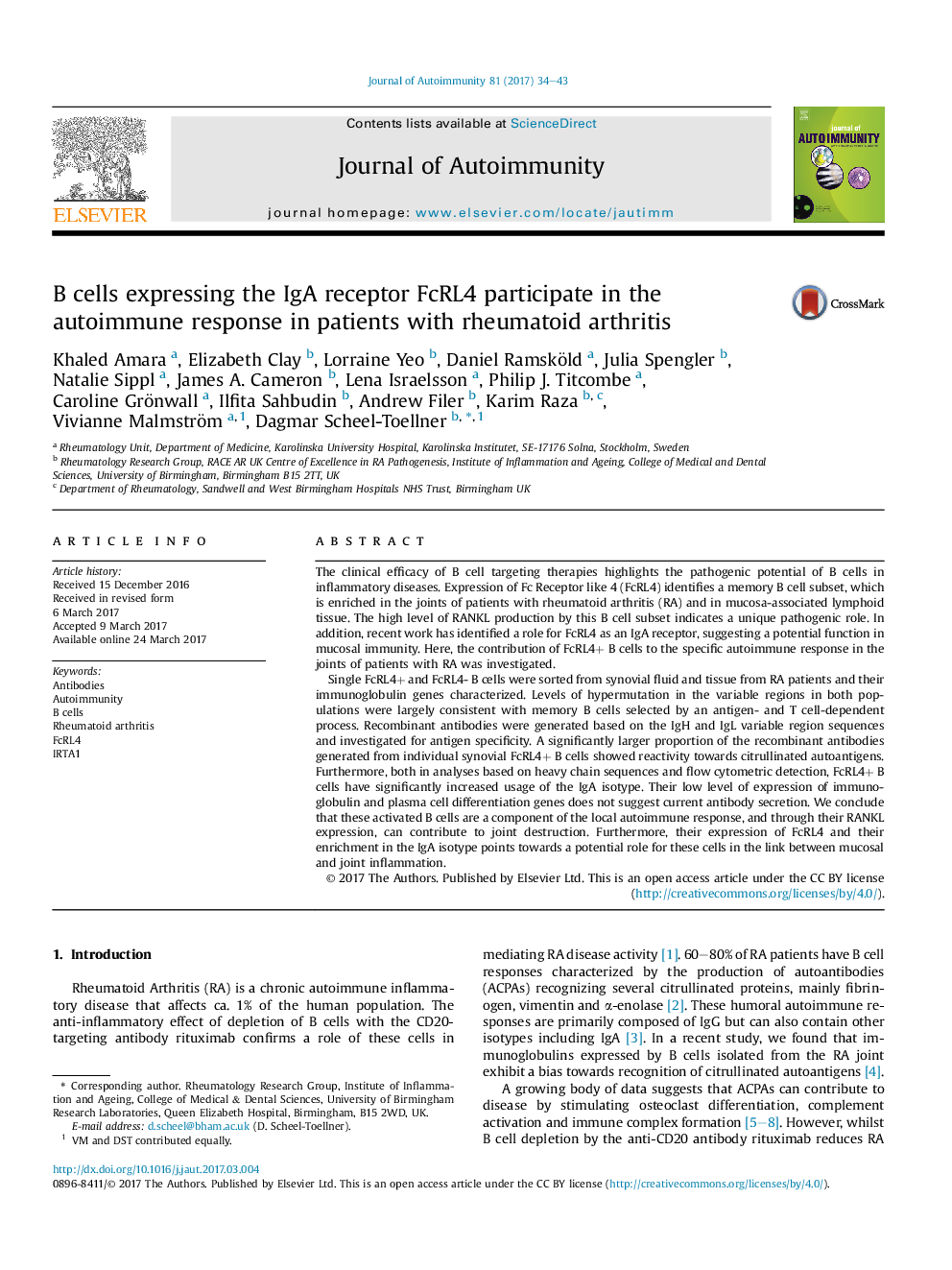| Article ID | Journal | Published Year | Pages | File Type |
|---|---|---|---|---|
| 5667813 | Journal of Autoimmunity | 2017 | 10 Pages |
â¢Memory B cells expressing the IgA receptor FcRL4 are found in the joints of patients with RA.â¢B cell receptors expressed on synovial FcRL4+ B cells more frequently belong to the IgA class.â¢Among recombinant antibodies cloned from FcRL4+ B cells there is more reactivity with citrullinated proteins.â¢The gene transcription profile of FcRL4+ B cells shows a low level of differentiation to plasma cells.â¢These cells may be involved in the link between mucosal and joint autoimmunity.
The clinical efficacy of B cell targeting therapies highlights the pathogenic potential of B cells in inflammatory diseases. Expression of Fc Receptor like 4 (FcRL4) identifies a memory B cell subset, which is enriched in the joints of patients with rheumatoid arthritis (RA) and in mucosa-associated lymphoid tissue. The high level of RANKL production by this B cell subset indicates a unique pathogenic role. In addition, recent work has identified a role for FcRL4 as an IgA receptor, suggesting a potential function in mucosal immunity. Here, the contribution of FcRL4+ B cells to the specific autoimmune response in the joints of patients with RA was investigated.Single FcRL4+ and FcRL4- B cells were sorted from synovial fluid and tissue from RA patients and their immunoglobulin genes characterized. Levels of hypermutation in the variable regions in both populations were largely consistent with memory B cells selected by an antigen- and T cell-dependent process. Recombinant antibodies were generated based on the IgH and IgL variable region sequences and investigated for antigen specificity. A significantly larger proportion of the recombinant antibodies generated from individual synovial FcRL4+ B cells showed reactivity towards citrullinated autoantigens. Furthermore, both in analyses based on heavy chain sequences and flow cytometric detection, FcRL4+ B cells have significantly increased usage of the IgA isotype. Their low level of expression of immunoglobulin and plasma cell differentiation genes does not suggest current antibody secretion. We conclude that these activated B cells are a component of the local autoimmune response, and through their RANKL expression, can contribute to joint destruction. Furthermore, their expression of FcRL4 and their enrichment in the IgA isotype points towards a potential role for these cells in the link between mucosal and joint inflammation.
